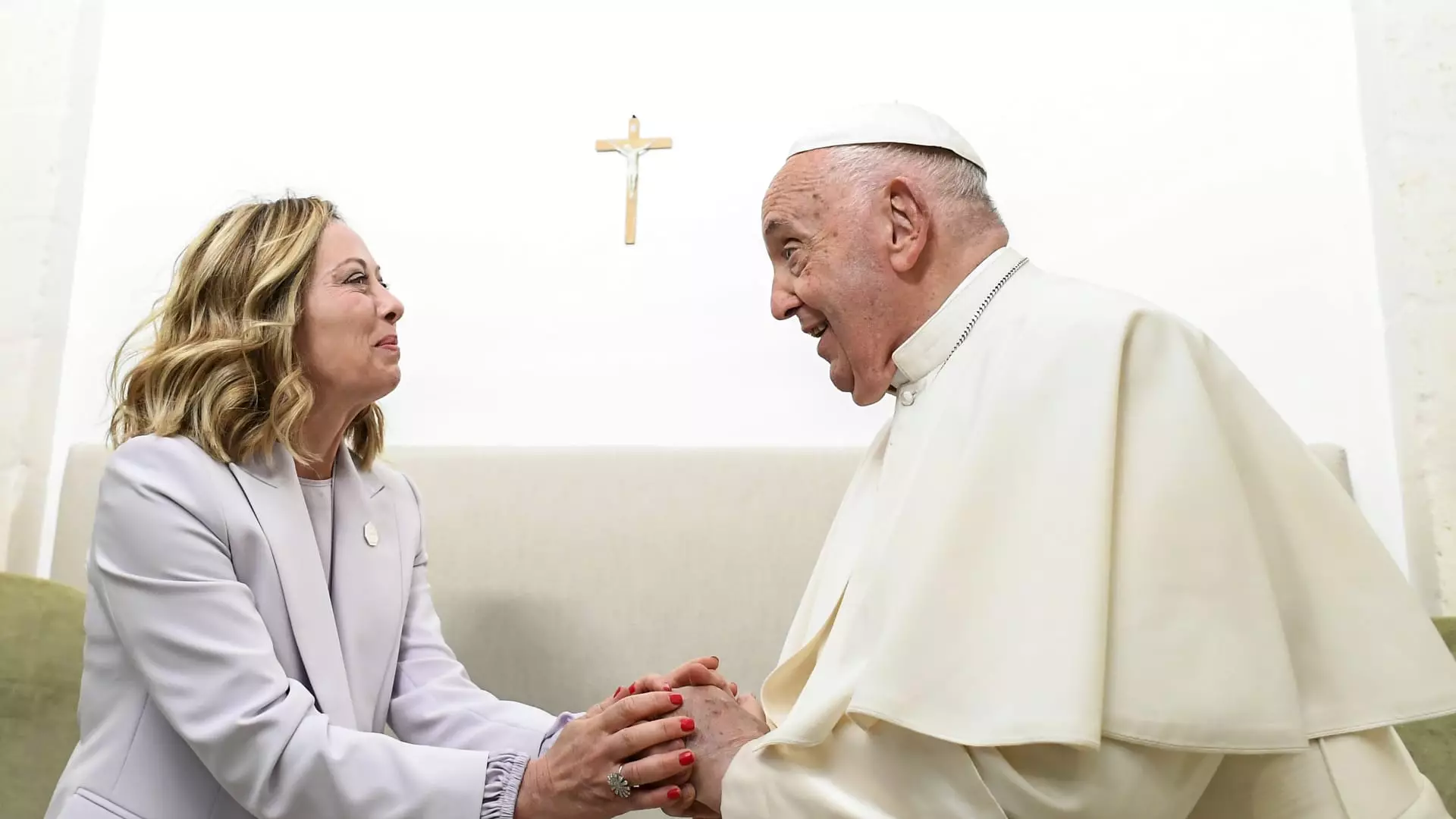Pope Francis made a groundbreaking appearance at the Group of Seven summit where he addressed the complexities surrounding artificial intelligence. He highlighted both the positive and negative aspects of AI, recognizing that while it has the potential to inspire excitement and increase access to knowledge, it could also exacerbate inequalities between advanced and developing nations. This acknowledgment sheds light on the ethical implications of technological advancement and emphasizes the need for responsible implementation to prevent further marginalization of vulnerable populations.
In addition to Pope Francis’ address, G7 leaders also focused on addressing what they deemed as harmful business practices by China. The group pledged to take action against China’s economic influence and unbalanced markets in key sectors such as electric vehicles, steel, and renewable energy. Their commitment to protecting businesses from unfair practices and leveling the playing field reflects a shared concern over China’s dominance in global trade and the need to ensure fair competition among nations.
Migration Crisis and Collaborative Efforts
Another critical issue discussed during the summit was the global migration crisis, which has become a pressing humanitarian concern. G7 leaders recognized illegal migration as a global emergency and emphasized the importance of sovereign nations controlling their borders to prevent exploitation by criminal networks. The agreement to launch a coalition to combat people smuggling and enhance collaboration on investigations signifies a concerted effort to address the root causes of migration and protect vulnerable populations from exploitation.
Furthermore, the G7 nations demonstrated solidarity in supporting Ukraine by agreeing on a significant financial package to provide $50 billion in loans backed by interest from frozen Russian assets. This financial assistance serves as a powerful signal of Western resolve in condemning Russia’s invasion of Ukraine and inflicting costs on entities that aid Russia in circumventing sanctions. The G7’s collective response underscores their commitment to upholding international norms and ensuring accountability for aggressive actions by authoritarian regimes.
Despite the progress made on key issues, the G7 summit was not without controversy, particularly regarding sensitive social issues. Italy, under the leadership of Prime Minister Geogria Meloni, faced criticism for omitting direct references to abortion and allegedly watering down support for LGBTQ rights in the final communique. This diplomatic discord highlights the challenges of navigating divergent views within the G7 and underscores the importance of addressing social issues with sensitivity and inclusivity.
Pope Francis’ presence at the G7 summit brought attention to the ethical considerations surrounding artificial intelligence and technological advancement. The discussions on China’s economic practices, migration crisis, support for Ukraine, and social issues reflect the diverse challenges facing the global community. While the summit demonstrated collaborative efforts to address pressing issues, it also underscored the complexities of international diplomacy and the need for inclusive dialogue to foster meaningful progress. The outcomes of the G7 summit serve as a reminder of the shared responsibility of world leaders in shaping a more just and equitable future for all.


Leave a Reply